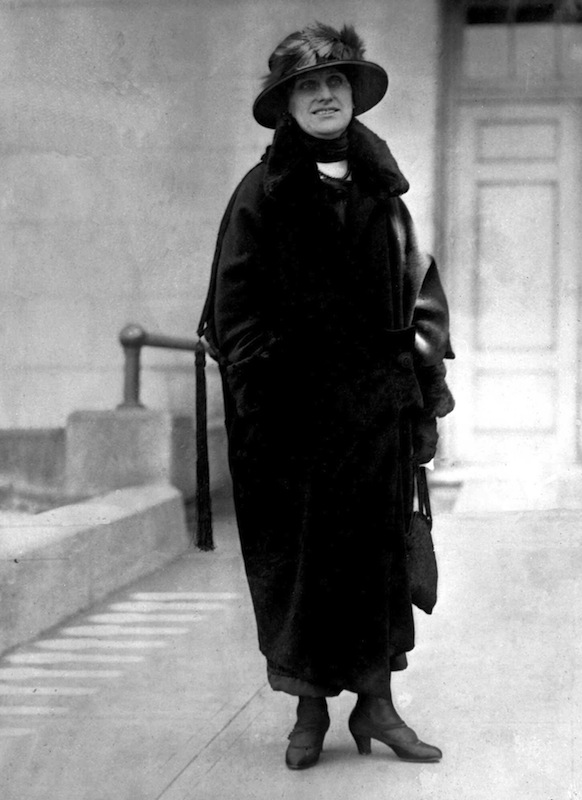
Before there was Sarah Palin or Ann Richards, there was Nellie Tayloe Ross. Ninety years ago today, on Nov 4, 1924, Ross was elected governor of Wyoming, and became the first woman governor in the United States.
Ross was elected a month after her husband, Governor William B. Ross, died suddenly of appendicitis. Her supporters thought it was fitting that the first state to allow equal voting rights (Wyoming passed women’s suffrage in 1869) would also be the first to have a woman governor, and Ross was committed to continuing her husband’s progressive policies. Plus, she wanted the job. Ross was the first woman governor by only a few days — Miriam “Ma” Ferguson, who had also been a state First Lady, was sworn in as governor of Texas just over two weeks after Ross took office.
Ross was inaugurated on Jan. 5, 1925. Eleven days later, when she appeared before the Legislature to review the progress of her late husband, The New York Times ran the headline, “Mrs. Ross Wears Hat Before Legislature,” and noted that she “defied precedent” by “wearing hat and gloves.” Other contemporary media accounts noted that she had “not lost her womanliness” and remained “ever feminine, never a feminist,” as noted in her Times obituary when she died in 1977. “Really, I dropped accidentally into politics,” she told the Times in 1926, saying she preferred to taking a stroll along the boardwalk to discussing rumors of a 1928 bid for the Vice Presidency (which never materialized).
Ninety years later, women politicians are still struggling with the delicate balance of femininity, ambition and power. Even though we may have a woman president sometime soon, female politicians must still be attractive but not too sexy, ambitious but not too scary. And as much as we may want to think that we’re past caring how female politicians look, the recent kerfuffle over Sen. Tom Harkin comparing Iowa Republican candidate Joni Ernst to Taylor Swift proves not much as changed in the last nine decades. That focus on looks is bad for women who aspire to politics. “When [a woman]’s appearance is commented on publicly during a campaign, it undermines her; it actually hurts her,” Senator Kirsten Gillibrand (D-NY) said at the Real Simple/TIME Women & Success Panel in October. “And it doesn’t matter if the comment is positive or negative. It undermines her credibility.”
Ross also had to dispel the idea that she would use her power to rid the Wyoming government of men, and create an all-woman government ( a 1925 man’s worst nightmare). Here’s what TIME reported in 1925 that she told the Associated Press when asked about her view of women in politics:
“It is most amusing and amazing to me, for example, to be asked, as I was soon after my election, whether I expected to appoint any men to office? This question, telegraphed to me from the East by a well-known metropolitan newspaper, had every indication of being quite sincere, and was apparently inspired by the fear that the elevation of women to executive office was likely to be followed by the dismissal of all men and the substitution of women in their places.”
If Nellie Tayloe Ross were alive today, she’d certainly have some thoughts about #notallmen.
More Must-Reads from TIME
- Cybersecurity Experts Are Sounding the Alarm on DOGE
- Meet the 2025 Women of the Year
- The Harsh Truth About Disability Inclusion
- Why Do More Young Adults Have Cancer?
- Colman Domingo Leads With Radical Love
- How to Get Better at Doing Things Alone
- Michelle Zauner Stares Down the Darkness
Write to Charlotte Alter at charlotte.alter@time.com